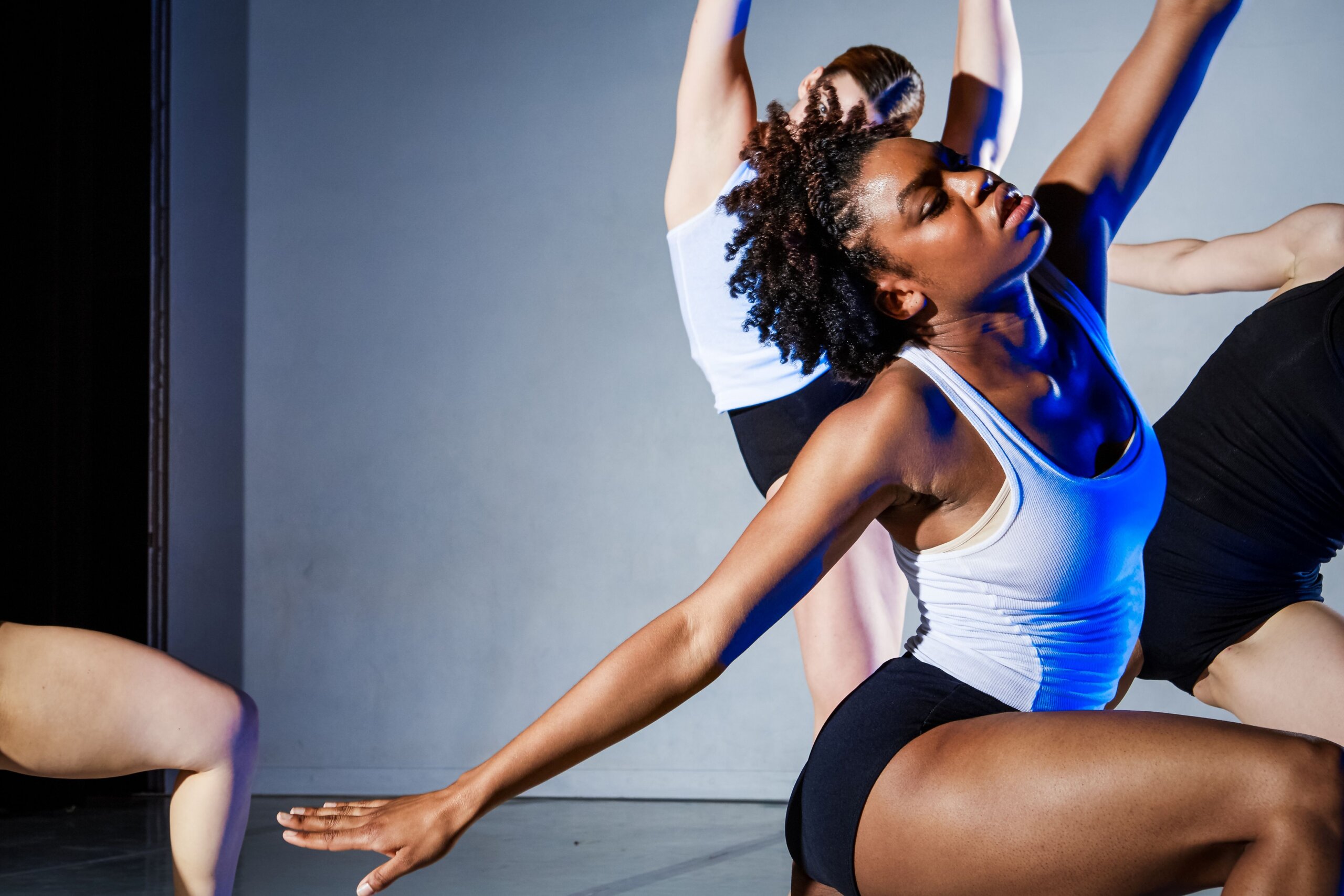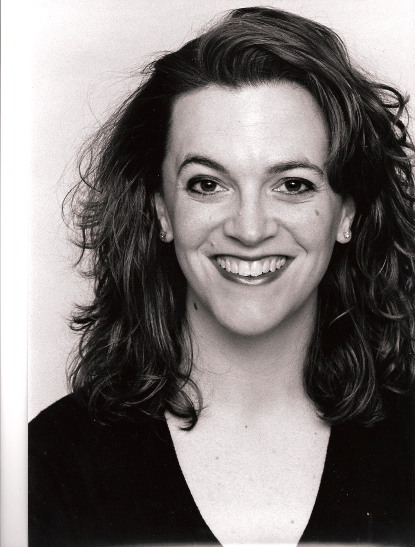
Dance
Online Courses
Rutgers Arts Online offers online courses on your schedule. Our list of Dance courses are taught by working artists who are experts in their field.
Matriculated and non-matriculated students may take courses through Rutgers Arts Online. Non-matriculated students must complete the Rutgers University application before registering for a course.
Available Courses
07:203:131 Dance Appreciation Online
Dance Appreciation Online
Course Number: 07:203:131
Course Format: Lecture
Mode of Instruction: Online Asynchronous
Dance Appreciation Online is an introduction to dance as an art form, wherein students study the historical, cultural, social and performative contexts of diverse dance forms. Students engage with aesthetic, theoretical, and scholarly discourses aimed at illuminating how dance functions as a form of communication and personal, aesthetic expression. In addition, students explore the ways in which dance both reflects and comments upon contemporary society. Students develop fundamental dance literacy through critical analysis of dance in live and recorded formats; identify aesthetic concepts and ideas through written and visual media; demonstrate comprehension in their utilization of dance vocabulary and terminology; discuss influential choreographers and genres of dance; and articulate critical conclusions about the reciprocal relationship between dance, the arts and societal concerns.
3 credits
Course Prerequisites and Corequisites: None
Learning Goals of Course
Course Learning Objectives:
- To develop the ability to perceive, analyze, describe, discuss, and understand dance as an art form across cultures and forms.
- To identify and discuss the social, cultural, and historical contexts of diverse dance forms.
- To define and describe the elements of dance composition.
- To demonstrate knowledge of influential choreographers and eras of dance.
- To articulate dance terminology and aesthetic concepts through both written and kinesthetic formats.
- To refine critical analytical skills through viewing dance in live and recorded formats and presenting ideas in written and visual media.
Policies for Exams, Assignments, Attendance, and Grading
Course Lecture Content: You must prepare the online lecture content for every course. This is your means of "attending" the course and your best opportunity for achieving the course learning goals.
Reading: Moderate - In order to complete the assessment components of the course, including threaded discussions, writing assignments, exams and the final project, you need to complete all assigned readings each week.
Videos: Heavy - Material from the videos will be included in the exams. It is essential that you watch all videos from start to finish, for exam content and for ideas for building your final project. You will not be able to successfully complete this course if you do not complete all video viewing.
Assignments and activities for the course (1000 points). For each assignment, check the Rubric in your ASSIGNMENT DUE DATES & RUBRICS Module for detailed grading criteria.
- “I Understand” Quiz: Checks understanding of course logistics and expectations. Details in course content. (40 points)
- "Your Move" (Introduction): You get 30 points for introducing yourself to the class!
- "Your Move" (Threaded Discussions): There are 3 "Your Move" discussion assignments. (30 points each)
- Quick Quizzes: There are 4 quick quizzes to check for content knowledge. (50 points each)
- Dance Video Analysis: There are 2 dance video analysis assignments. (The first is worth 50 points; the second is worth 100 points.)
- Cultural Response Assignments: There are 2 cultural response assignments. (100 points each)
- Respondus Set Up for Exam 1 (30 points)
- Exams: 2 Multiple Choice Exams (130 points each)
Instructors: Darrah Carr, dacarr@mgsa.rutgers.edu; Kathleen Flynn Gavin, katfly@mgsa.rutgers.edu; Stephen O'Connell, soconnell@mgsa.rutgers.edu
07:203:132 History of Broadway Dance Online
History of Broadway Dance Online
Course Number: 07:203:132
Course Format: Lecture
Mode of Instruction: Online Asynchronous
Explores the evolution of dance in musical theater and on Broadway. Course topics will include a historical survey of dance on Broadway; an examination of the reciprocal relationship of Broadway dance to economic and cultural change; and a close look at the power structure and organization of Broadway musicals. The evolution of Broadway dance steps and styles and the contribution of notable dancers will be examined.
3 credits
Course Prerequisites and Corequisites: None
Learning Goals of Course
By the end of the course, students will be able to:
- Organize Broadway dance and musical theatre on a timeline of relevant historical and economic issues.
- Compare Broadway dances across decades to understand the evolution of Broadway dance through history.
- Understand the reciprocal relationship of culture and the arts, specifically culture and dance.
- Recognize notable Broadway choreographers and be able to evaluate each choreographer’s specific contributions to Broadway dance and musical theatre history.
- Analyze Broadway dance choreography to differentiate historical, cultural and artistic components.
- View, evaluate and critique Broadway dance using formalistic/artistic properties and from the perspective of an informed audience.
- Articulate written evaluations and critiques of Broadway dance using domain specific language.
Policies for Exams, Assignments, Attendance, and Grading
Assignments (Total of 900 points):
- “I Understand” Word Doc Submission – 40 points
- Class Discussion (5) – 150 points (30 points each)
- Journal Entries (3) – 90 points (30 points each)
- Dance Video Analysis - Form (2) – 80 points (40 per assignment)
- Broadway Dance Video Analysis (3) – 150 points (50 per assignment)
- Written Responses (6) – 240 (40 points each)
- Includes 2 "Get Up and Dance" options to replace Written Responses.
- Peer Review of Final Presentation – 30 points
- Broadway Analysis Presentation - Rough Draft - 20 points
- Broadway Analysis Final Presentation – 100 points
Instructor: Andrew Greenspan, ag1224@mgsa.rutgers.edu
**07:206:431 Dance History: World Survey Online
Dance History: World Survey Online
Course Number: 07:206:431
Course Format: Lecture
Mode of Instruction: Online Asynchronous
In order to understand the history of dance, we must first ask–why do we dance? While dancing is a universal human activity, it does not play the same role in every culture. 07:206:431 examines the many functions of dance around the world and throughout history. The independent, triangular relationship between a given dance’s function, form and context will be revealed through an analysis of original source readings and selected videos. Weekly discussion board posting and blog entries will provide opportunity for reflection on the broad range of concerts that affect dance’s place and purpose in different societies.
3 credits
Course Prerequisites and Corequisites: None
Learning Goals of Course:
Course Goals
Through this course students will:
- Broaden their knowledge of the distinct historical formations of dance practices across various continental areas;
- Comprehend vital terminology associated with these different dance forms.
Learning Objectives
This course aims for students to:
- Openly discuss and engage in questions about dance tradition, as a form of historical innovation, with a set of aesthetic roots in social environment.
- Think collaboratively in outlining the regional contexts assigned to dance styles, and in considering how these forms have circulated outside their continental territory.
- Write analytically about how particular dance forms have emerged out of historical processes, or have continued to transform alongside the restrictions or possibilities of social dynamics.
- Work methodically toward completing a well-written grant proposal in the arts and humanities.
Learning Outcomes
As a result of participating in this course, students will:
- Examine how dance forms emerge from specific relationships with land, and/or through the terms of colonial histories.
- Build the capacity to link dance performance to social dynamics rooted in ceremony, ritual, and communal practices.
- Develop awareness of how dance styles have formed in ways that bolster the construction of individual and collective identities.
- Thoroughly comprehend how social categories such as gender, sexuality, and race have historically influenced the making of dance forms.
- Think critically about how dance practices emerge within and outside the territorial fixations of continent, country, and/or nation.
- Effectively write and orally present on goals and objectives of their grant writing proposal.
Instructors:
Alessandra Lebea Williams, alessandra.williams@rutgers.edu
Jeffrey Friedman, jfdance@mgsa.rutgers.edu
**07:206:432 Dance History: 1900 to the Present Online
Dance History: 1900 to the Present Online
Course Number: 07:206:432
Course Format: Lecture
Mode of Instruction: Online Asynchronous
This course provides an overview of the development of ballet, modern, and contemporary dance practice throughout the 20th and 21st centuries. Original source readings will describe the dance field’s major figures and movement theories, while videos will introduce the work of selected choreographers. The interdependent relationship between dance and society will be revealed through the analysis of dance works within their social, cultural, historical, and political contexts. Reading, video, and movement discussion board postings and Blog presentations will provide opportunity for reflection on the broad range of concerns that inform an individual choreographer’s work. There will be six quizzes and students will write two long essays.
3 credits
Course Prerequisites and Corequisites: None
Learning Goals of Course
Course Goals
Through this course, students will examine:
- 21st-Century Challenges
- Analyze the degree to which forms of human difference shape a person’s experiences of and perspectives on the world.
- Social Science and History
- Understand the bases & development of human and societal endeavors across time and place.
- Identify and critically assess ethical issues in social science and history.
- Historical Analysis
- Explain the development of some aspect of a society or culture over time, including the history of ideas.
- Arts and the Humanities
- Examine critically philosophical and other theoretical issues concerning the nature of reality, human experience, knowledge, value and/or cultural production.
- Analyze arts and/or literatures in themselves and in relation to specific histories, values languages, cultures, and technologies.Engage critically in the process of creative expression.
Course Objectives
Through the successful completion of this course, students will be able:
- To describe, comprehend, and analyze historical movements and philosophical ideas in the development of modern and contemporary dance practice throughout the 20th and 21st centuries.
- To critically analyze writings about, as well as dance works and practices drawn from, a wide variety of choreographers.
- To be knowledgeable of specific dance genres and the appropriate dance terminology used to describe them.
- To view and then be able to critique diverse dance works with effective writing skills.
- To conduct research using multiple information sources. To integrate sources effectively & ethically using proper citation.
- To place practice in social and historical context.
Policies for Exams, Assignments, Attendance, and Grading
- Grading Policies/Course Requirements: Incomplete assignments average into the summative grade as a zero. BFA Dance Majors may also be placed on artistic probation for receiving a grade of C or less in a Dance Department course required for completion of their degree.
- Requirements:
- Reading/Viewing Responses and Discussion Posts (9 x 4 points each) 36 points
- Office Hour Meeting with Instructor, 3 points
- Preliminary Video Submission, 6 points
- Peer Response, 6 points
- Analysis Paper
- Peer Review of Analysis Paper, 2 points
- Analysis Paper, 10 points
- Making Dance History Accessible Symposium
- Peer Review of Final Blog, 2 points
- Final Blog, 19 points
- Rough-cut Social Media Video, 2 points
- Final Video, 10 points
- Final Evaluation, 4 points
- Total Points: 100 points
Instructors:
Alessandra Lebea Williams, alessandra.williams@rutgers.edu
Jeffrey Friedman, jfdance@mgsa.rutgers.edu
**Note: Dance History: World Survey and 1900 to the Present Online are only available to BFA and BA Dance majors.






